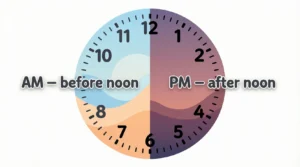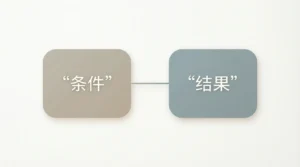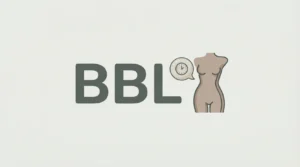In the workplace, saying “no” to extra work can feel challenging. Whether you’re overloaded with tasks or the request doesn’t align with your role, it’s essential to respond tactfully to avoid damaging professional relationships. The key is to remain polite, professional, and assertive while maintaining your boundaries.
“Learn how to politely decline extra work while maintaining professionalism and strong workplace relationships. Master the art of saying ‘no’ without guilt or conflict!”
Below, you’ll find 40 polite scenarios with replies, impacts, and examples to help you decline extra work gracefully. Use these to navigate workplace conversations and protect your time without jeopardizing your reputation.
1. “I’d love to help, but I’m currently at capacity.”
- Scenario: Your manager asks you to take on an additional project while your plate is already full.
- Reply: “I’d love to help, but I’m currently at capacity with my current workload. Is there a way we can prioritize tasks, or can someone else assist?”
- Impact: Shows willingness but establishes boundaries, making it clear you value quality work over quantity.
2. “I’m unable to commit to this right now, but I can help later.”
- Scenario: A colleague asks for help with an urgent task while you’re focused on your deadlines.
- Reply: “I’m unable to commit to this right now, but I’d be happy to help once I wrap up my current tasks.”
- Impact: Offers assistance without immediate obligation, showing you value teamwork but have priorities.
3. “Can we revisit this after my current deadlines?”
- Scenario: Your supervisor asks for extra work when you have looming deadlines.
- Reply: “I’d like to help, but I have some pressing deadlines to meet. Can we revisit this later this week?”
- Impact: Signals that you’re prioritizing your responsibilities while remaining open to helping later.
4. “I appreciate the opportunity, but I don’t have the bandwidth.”
- Scenario: You’re offered a stretch project, but your schedule is packed.
- Reply: “Thank you for thinking of me! I appreciate the opportunity, but I don’t have the bandwidth to give it the attention it deserves.”
- Impact: Expresses gratitude while being transparent about your limits.
5. “Could someone else take this on?”
- Scenario: A non-urgent task is assigned to you even though others have availability.
- Reply: “I’m tied up with ongoing projects. Could we see if someone else might have the capacity for this?”
- Impact: Suggests a practical solution and redirects the request without sounding dismissive.
6. “I don’t think I’m the best fit for this task.”
- Scenario: You’re asked to handle a project that falls outside your expertise.
- Reply: “I don’t think I’m the best fit for this task. Perhaps someone with more experience in this area could take it on?”
- Impact: Maintains professionalism while ensuring the task is completed by the right person.
7. “I’d need to deprioritize other tasks to take this on.”
- Scenario: A high-level manager wants you to pick up another project.
- Reply: “I’d need to deprioritize some of my current tasks to take this on. Would you prefer I do that, or should we find an alternative?”
- Impact: Shows accountability and communicates the trade-offs involved.
8. “I’d like to, but I’m focusing on my current deliverables.”
- Scenario: A team member asks you for help with their work.
- Reply: “I’d like to, but I’m focusing on my current deliverables. Let me know if you still need help after my deadlines.”
- Impact: Reinforces that your current workload takes priority while still being supportive.
9. “I’m fully booked this week, but I’d be happy to offer advice.”
- Scenario: A junior colleague seeks your help with their task.
- Reply: “I’m fully booked this week, but I’d be happy to offer advice or resources that might help.”
- Impact: Offers support in a way that doesn’t add to your workload.
10. “I’d love to help, but I need to stay focused.”
- Scenario: A teammate wants to offload a task onto you.
- Reply: “I’d love to help, but I need to stay focused on my current priorities to meet deadlines.”
- Impact: Maintains focus on your responsibilities while being courteous.
11. “I’ll need to check with my supervisor first.”
- Scenario: A peer asks you to take on extra work without manager’s approval.
- Reply: “I’ll need to check with my supervisor first to make sure I can manage it alongside my current workload.”
- Impact: Redirects responsibility to leadership, keeping you in the clear.
12. “Let’s set up a meeting to discuss priorities.”
- Scenario: Your manager adds more tasks without reviewing your current workload.
- Reply: “I’d be happy to discuss this. Could we set up a meeting to review my current priorities and timelines?”
- Impact: Encourages open communication and emphasizes planning.
13. “I’m already committed to several deadlines.”
- Scenario: A colleague asks you to help with a project at the last minute.
- Reply: “I’d love to help, but I’m already committed to several deadlines. Maybe we can explore options for additional support.”
- Impact: Communicates your workload and redirects the request for alternative solutions.
14. “I want to ensure I deliver quality work, so I can’t take this on right now.”
- Scenario: Your boss assigns you a non-urgent task on top of an already demanding schedule.
- Reply: “I’d like to help, but I want to ensure I deliver quality work on my current projects. Can this be rescheduled?”
- Impact: Shows dedication to high standards while protecting your workload.
15. “Could we discuss this during our next team meeting?”
- Scenario: A task is assigned informally in a hallway chat.
- Reply: “Thanks for bringing this up! Could we discuss it further during our next team meeting to clarify priorities?”
- Impact: Moves the discussion to a more formal setting and buys you time to prepare.
16. “I’d be happy to provide guidance, but I can’t take it on myself.”
- Scenario: A team member asks for hands-on help with their work.
- Reply: “I’d be happy to provide guidance or share resources, but I can’t take it on myself right now.”
- Impact: Offers support in a limited capacity without adding to your workload.
17. “Let me connect you with someone who can help.”
- Scenario: You’re asked to assist with something outside your expertise.
- Reply: “I may not be the best person for this, but let me connect you with [name/department] who might be able to help.”
- Impact: Redirects the task to a more suitable individual, keeping the workflow efficient.
18. “I’m focusing on my primary responsibilities at the moment.”
- Scenario: You’re asked to assist on a side project unrelated to your role.
- Reply: “I’d love to contribute, but I’m focusing on my primary responsibilities at the moment.”
- Impact: Keeps your priorities clear while expressing interest in contributing later.
19. “Could this wait until next week?”
- Scenario: You’re asked to help with a task that’s not time-sensitive.
- Reply: “I’m tied up with deadlines right now. Could this wait until next week when I have more bandwidth?”
- Impact: Provides a practical timeline without rejecting the request outright.
20. “I’m flattered, but I’m overcommitted right now.”
- Scenario: You’re asked to lead a new initiative when you’re already stretched thin.
- Reply: “I’m flattered you thought of me, but I’m overcommitted right now. Maybe I could revisit this down the line?”
- Impact: Shows gratitude while setting boundaries politely.
21. “I’d love to help, but I’m juggling priorities at the moment.”
- Scenario: A teammate casually asks for your help on their task.
- Reply: “I’d love to help, but I’m juggling priorities at the moment. Let’s check back later if you still need assistance.”
- Impact: Reinforces that your current commitments come first.
22. “This doesn’t align with my current role, but I’m happy to assist in other ways.”
- Scenario: You’re asked to handle a task that’s outside your job scope.
- Reply: “This doesn’t align with my current role, but I’m happy to offer advice or point you in the right direction.”
- Impact: Maintains professionalism while politely declining.
23. “Thanks for asking, but I don’t have the time to do it justice.”
- Scenario: You’re offered an opportunity that requires significant effort.
- Reply: “Thanks for considering me! Unfortunately, I don’t have the time to do it justice right now.”
- Impact: Acknowledges the opportunity while ensuring quality remains a priority.
24. “I need to finish what’s on my plate before taking anything else on.”
- Scenario: Your supervisor assigns an additional task without consulting your workload.
- Reply: “I need to finish what’s on my plate first. Would it be possible to revisit this later?”
- Impact: Keeps your workload manageable while showing a willingness to contribute later.
25. “I’m at full capacity right now.”
- Scenario: A colleague casually requests help on their project.
- Reply: “I’m at full capacity right now, but let’s check if anyone else is available to assist.”
- Impact: Respectfully declines while offering an alternative.
26. “I appreciate the opportunity, but I’m focusing on my current goals.”
- Scenario: You’re offered a leadership role on a side project.
- Reply: “I appreciate the opportunity, but I’m focusing on my current goals and deadlines right now.”
- Impact: Politely declines while showing gratitude.
27. “I need to prioritize my main responsibilities first.”
- Scenario: You’re asked to take on a last-minute task.
- Reply: “I’d like to help, but I need to prioritize my main responsibilities first. Could someone else step in?”
- Impact: Demonstrates accountability and practicality.
28. “This falls outside my availability, but I’d be happy to brainstorm solutions.”
- Scenario: A teammate asks you to step in for an event you’re unavailable for.
- Reply: “This falls outside my availability, but I’d be happy to brainstorm solutions or help you plan.”
- Impact: Shows willingness to help indirectly while respecting your limits.
29. “Can this be reassigned to someone with more bandwidth?”
- Scenario: Your team lead assigns you a non-urgent task.
- Reply: “I’m currently occupied with high-priority projects. Could this be reassigned to someone with more bandwidth?”
- Impact: Encourages efficient task allocation while ensuring deadlines are met.
30. “I’ll need to pass on this to maintain focus on my current work.”
- Scenario: You’re asked to assist with an extra project you didn’t plan for.
- Reply: “I’ll need to pass on this one to maintain focus on my current work, but I appreciate the consideration!”
- Impact: Balances professionalism and prioritization.
31. “I’m fully engaged in my current commitments, but thanks for thinking of me.”
- Scenario: A manager offers a high-visibility project when you’re already overwhelmed.
- Reply: “I’m fully engaged in my current commitments, but I appreciate you thinking of me for this!”
- Impact: Politely declines while leaving the door open for future opportunities.
32. “I have other urgent tasks to focus on, but let me know if I can assist later.”
- Scenario: A colleague requests your help on a low-priority task when you have urgent deadlines.
- Reply: “I have other urgent tasks to focus on right now, but let me know if I can assist later this week.”
- Impact: Shows that you’re committed to your priorities while remaining open to helping once time permits.
33. “This is something I can’t take on at the moment, but I can help find someone who can.”
- Scenario: A team member asks you to take on additional responsibilities in your already full workload.
- Reply: “This is something I can’t take on at the moment, but I can help find someone who can handle it.”
- Impact: Proactively offers a solution without taking on more work, keeping things efficient.
34. “I want to make sure I give my full attention to my current projects.”
- Scenario: Your boss asks you to take on a new task while you’re in the middle of several projects.
- Reply: “I want to make sure I give my full attention to my current projects, so I’ll need to pass on this one.”
- Impact: Shows that you’re dedicated to delivering quality work and don’t want to spread yourself too thin.
35. “I’m already working at full capacity, so I can’t take on more right now.”
- Scenario: You’re asked to pitch in on a team project when you’re already swamped with your tasks.
- Reply: “I’m already working at full capacity, so I can’t take on more right now. Perhaps we can find another way to collaborate later.”
- Impact: Demonstrates transparency and a willingness to collaborate in the future, while respecting your limits.
36. “I’m focused on meeting my current deadlines, but I’m happy to revisit later.”
- Scenario: You’re offered an exciting new project, but your schedule is already packed.
- Reply: “I’m focused on meeting my current deadlines, but I’m happy to revisit this later once I have more availability.”
- Impact: Ensures that your existing commitments take priority without completely shutting down future opportunities.
37. “I’m at my limit with my current workload, but I can help in other ways.”
- Scenario: Your coworker asks if you can take on a portion of their workload.
- Reply: “I’m at my limit with my current workload, but I can help in other ways, like providing feedback or advice.”
- Impact: Demonstrates willingness to support without taking on additional responsibilities that could overwhelm you.
38. “I need to prioritize my existing commitments, but thank you for thinking of me.”
- Scenario: A senior colleague asks if you can join a new project when you’re already stretched thin.
- Reply: “I need to prioritize my existing commitments, but thank you for thinking of me. Maybe we can explore future opportunities.”
- Impact: Politely declines while leaving a door open for future collaboration.
39. “This isn’t something I can take on at the moment, but I’m happy to assist when possible.”
- Scenario: You’re asked to lead a new initiative while juggling multiple other projects.
- Reply: “This isn’t something I can take on at the moment, but I’m happy to assist when possible if timelines allow.”
- Impact: Set boundaries while showing that you’re not completely dismissing the request.
40. “I’ve already committed to other tasks, but I’d be happy to assist next week.”
- Scenario: Your supervisor asks you to handle additional work while you’re finishing up other priorities.
- Reply: “I’ve already committed to other tasks, but I’d be happy to assist next week once I’ve cleared some time.”
- Impact: Offers a solution that works within your schedule while keeping things polite and respectful.
FAQs
- Why is it important to say no to extra work politely?
To maintain good professional relationships while setting healthy boundaries. - How can I decline extra work without upsetting my boss?
Use polite language, explain your workload, and offer alternative solutions. - What phrases can I use to refuse additional work professionally?
Examples: “I’d love to help, but I’m currently at capacity,” or “I’m afraid I can’t take on more right now.” - How do I balance saying no and being a team player?
Offer support in other ways, like suggesting a timeline or delegating tasks. - Can declining work affect my performance review?
Not if communicated properly and backed with valid reasons like workload management. - What should I do if I’m pressured to accept extra work?
Stay firm but respectful, reiterating your capacity and priorities. - How do I politely say no to colleagues who ask for help?
Acknowledge their request, express understanding, and explain your constraints. - Is it okay to say no to extra work as a new employee?
Yes, but frame it professionally, showing commitment to doing your assigned tasks well. - What are some common mistakes to avoid when refusing extra work?
Avoid being rude, vague, or defensive; instead, communicate clearly and respectfully. - How can I prepare for future requests to avoid over-commitment?
Learn to prioritize, communicate your workload early, and keep track of your tasks.

Welcome to ReplyResponses.com, your go-to hub for quick, witty, and clever replies for every situation! Whether you’re looking to spice up your chats, craft the perfect comeback, or make your messages stand out, we’ve got you covered. From funny one-liners to smart responses, our platform helps you communicate with confidence and flair. Get ready to never run out of words again—because every conversation deserves the perfect reply!












